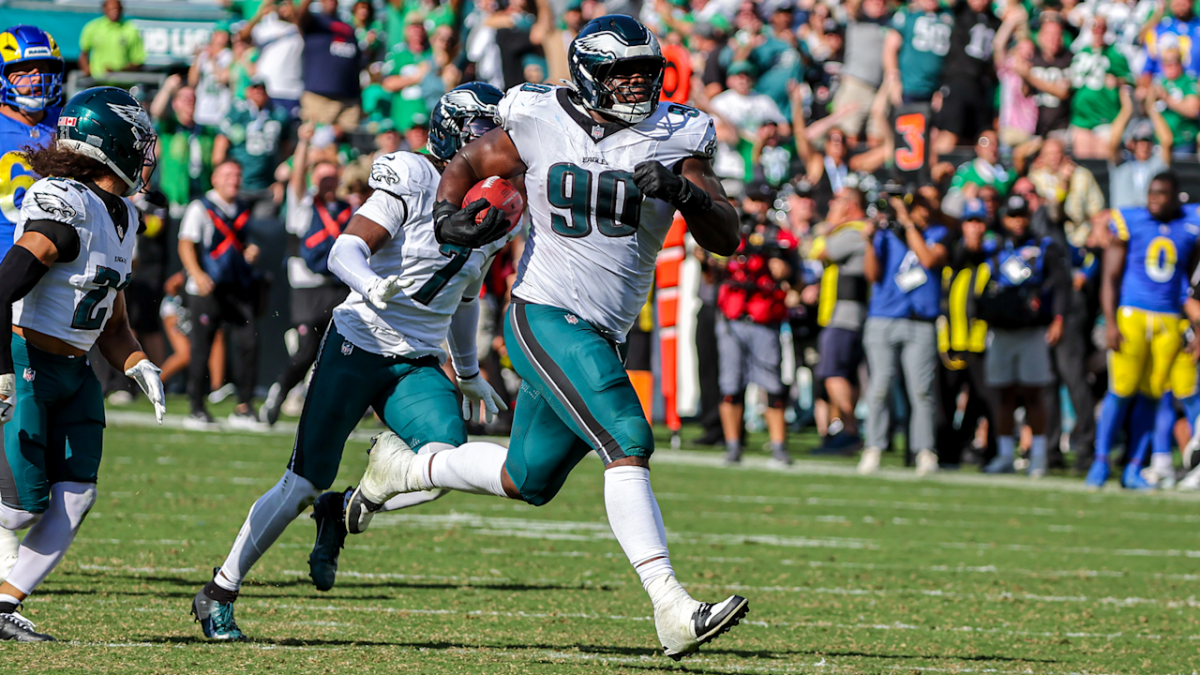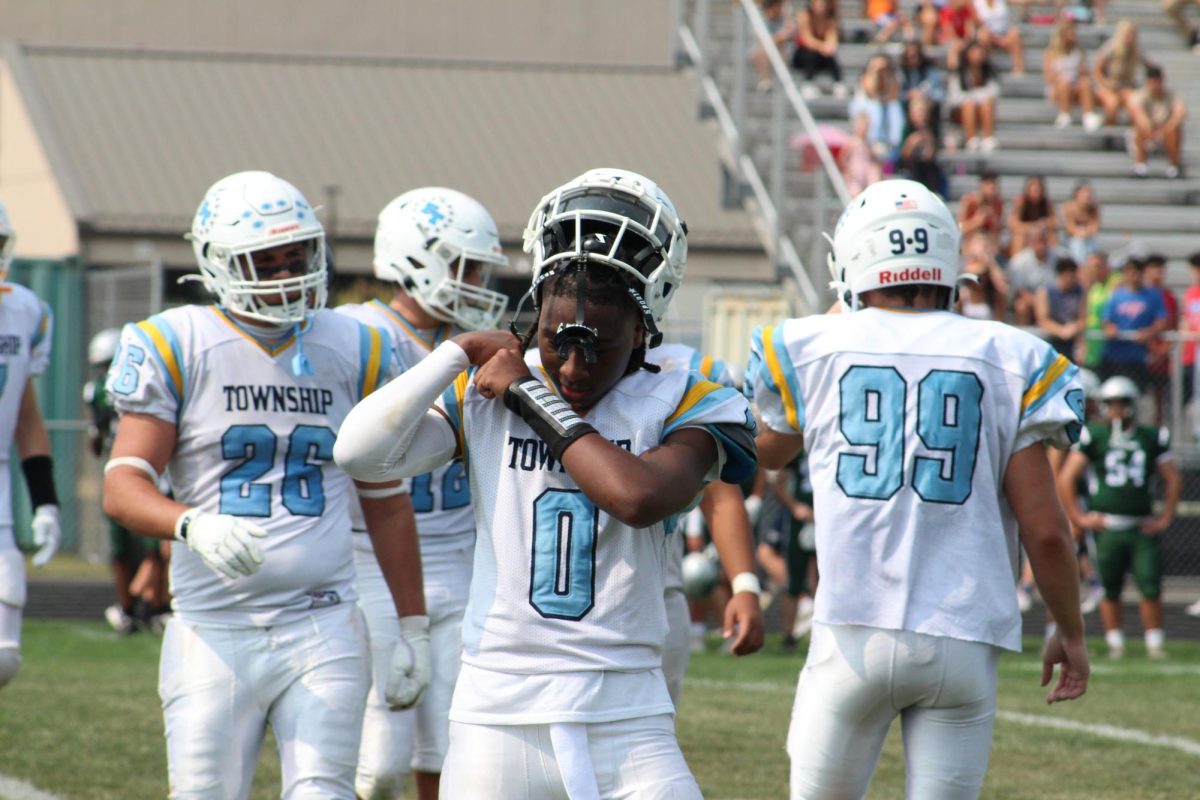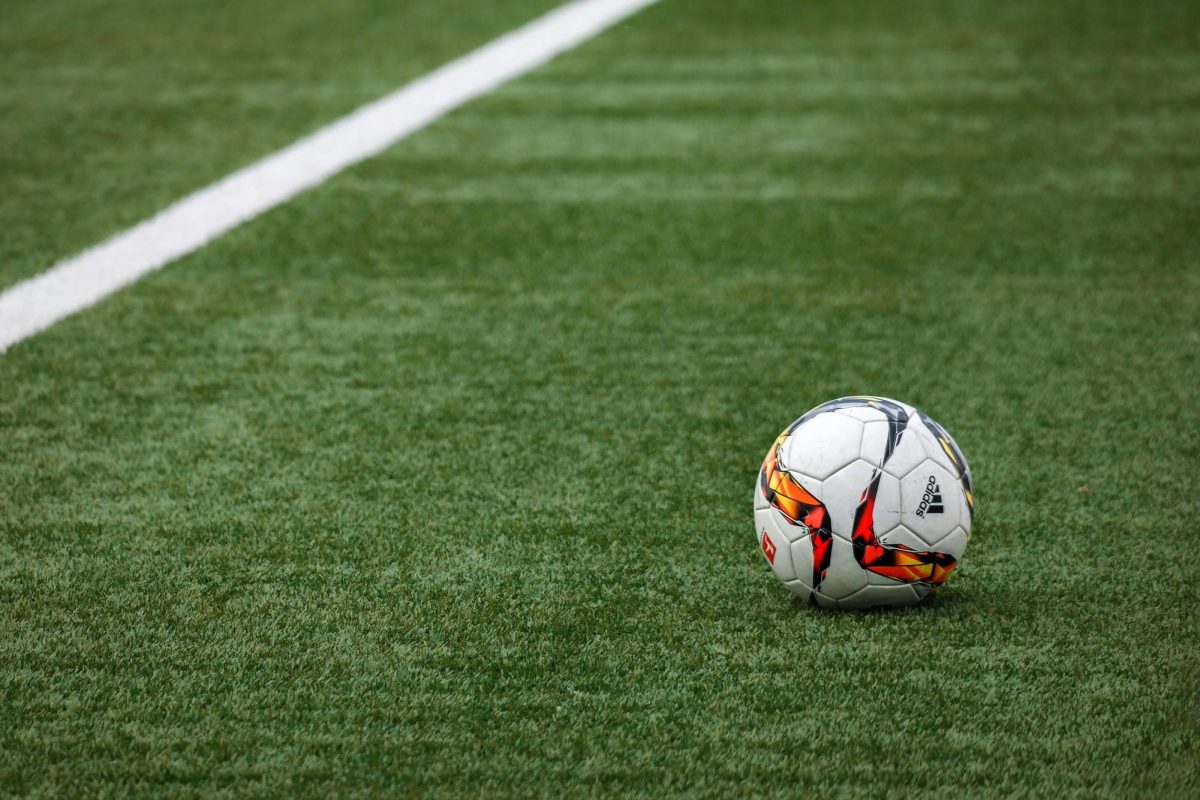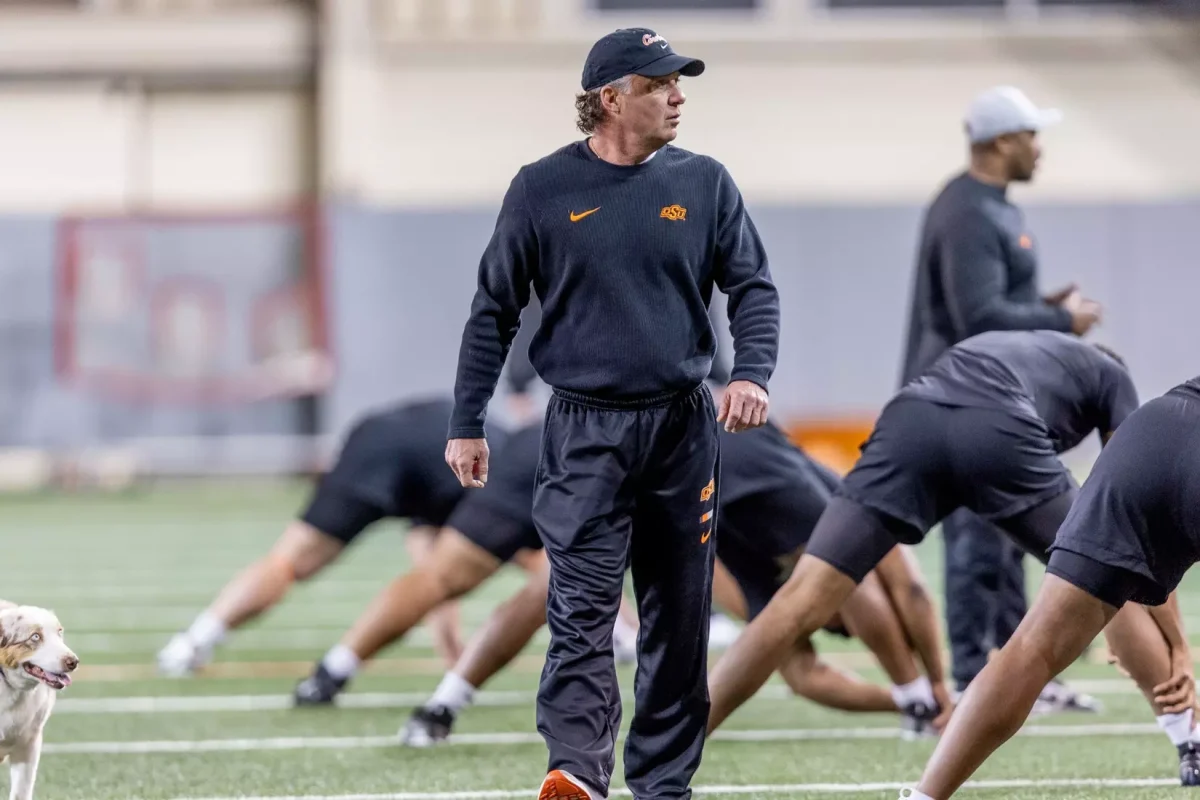Usually, summertime is quiet for sports. The NBA, NFL, and NHL are in off-season mode. The MLB is in mid-season. But this summer, soccer is in full swing. There are multiple major international tournaments worth keeping an eye on. This is the one that will capture the most attention.
What is this tournament exactly?
The UEFA European Football Championship, commonly known as the Euros by football fans on the continent, is a tournament that, like the World Cup, takes place every four years. The difference is that this tournament takes place entirely in Europe and consists entirely of nations from Europe. In the Euros, 24 teams fight for continental supremacy with a similar format to the World Cup: Group Stage, Round of 16, quarterfinals, and so on. The discrepancies between the Euros and World Cup are that there is no third-place game and that since there are only six groups, the four best third-place teams amongst the six groups advance to the Round of 16 along with the top two teams in each group.
The tournament was last held in 2021 (it was supposed to be in 2020, but, you know, COVID) and Italy was the champion. For those who remember, that tournament was hosted by multiple different cities to celebrate the 60th anniversary of the first tournament in 1960. This year, the tournament will be hosted in Germany, with games in Berlin (the capital), Munich (one of the various host cities of the last tournament), and Leipzig (once part of East Germany) amongst other cities.
The teams:
Here are the groups:
| Group A | Group B | Group C |
| Germany (host) | Spain | England |
| Scotland | Croatia | Denmark |
| Hungary | Italy | Serbia |
| Switzerland | Albania | Slovenia |
| Group D | Group E | Group F |
| France | Belgium | Turkey |
| Netherlands | Slovakia | Georgia |
| Austria | Romania | Czech Republic |
| Poland | Ukraine | Portugal |
Now for some quick team previews.
Group A
- Germany: The last three international tournaments have been very disappointing for Germany. Their 2018 World Cup ended in a group stage exit. Their 2020 Euro campaign ended in the Round of 16 with a loss to England. Their 2022 World Cup also ended in a group-stage exit. Die Mannschaft are frankly lucky that being a host made them automatically qualify for the Euros this year based on this poor run of form in major tournaments. The hope is that new coach Julian Nagelsmann will turn things around in his first major international tournament. The former Bayern Munich manager will have a strong team with players he has worked with in the Bundesliga, notably Manuel Neuer, Joshua Kimmich, and Thomas Muller, all of whom won a league title with Nagelsmann. New faces include midfielder Florian Wirtz, a 20-year-old star for Bayer Leverkusen who helped lead his club to their first-ever Bundesliga title in 2023-24. Other players like Deniz Undav, Maximilian Beier, and Aleksandar Pavlovic will participate in their first major tournament, while Toni Kroos will participate in his last (he will retire following the tournament). Germany is the clear favorite to win the group, but it won’t be easy.
- Switzerland: Over the last decade, Switzerland has been consistent in the group stages of every tournament. In the last Euros, Switzerland managed to defeat France in the Round of 16 and took Spain to penalties in the quarterfinals. They have the star power to do it over again. Yann Sommer has played very well considering his old age (35) but his insurance policy, Gregor Kobel of Borussia Dortmund, is very good in his own right. Manuel Akanji is the heart of a strong defense and forward Breel Embolo has an opportunity to make a big splash.
- Hungary: No pun intended here: this team is starving to be the Cinderella team of this year’s tournament. They have the firepower to do this. Goalkeeper Peter Gulacsi and defender Willi Orban will likely make life difficult for opposing strikers. Once they get the ball, they can feed a very energetic midfield starring MLS star Daniel Gazdag and Liverpool’s Dominik Szoboszlai, the latter of whom played with Orban and Gulacsi with RB Leipzig. With the creative talent to compete with many other teams, Hungary is sneaky good. So is Scotland.
- Scotland: Many counted out Scotland when they were drawn with Erling Haaland’s Norway in their qualifying group, but thanks to a ton of goals from defensive midfielder Scott McTominay, they managed to secure qualification. The strength of this team is left-back, where Champions League winner Andrew Robertson is the starter. The midfield is talented, with McTominay, John McGinn, and Lewis Ferguson showing flashes of goal-scoring ability from time to time. Unfortunately, Scotland lacks firepower in the forward line and it makes them the biggest underdogs in the group.
Group B (Group of Death)
- Italy: The defending European champions may have lost their starting center-back duo of Leonardo Bonucci and Giorgio Chiellini to old age, but it looks like they will be as stacked as ever. Gianluigi Donnarumma, the best goalkeeper of Euro 2020, is still protecting the net. Giovanni Di Lorenzo is still the right-back. The new center backs, including Alessandro Bastoni and Gianluca Mancini, could be better than Chiellini and Bonucci. Federico Dimarco looks slated to be the left-back. Davide Frattesi and Nicolo Barella in midfield will be a force. And watch out for Mateo Retegui, an Argentine-born Italian who made waves in his first year in Serie A, Italy’s top soccer league.
- Spain: You will quickly see that this group is very strong. Italy beat Spain in the semifinals of Euro 2020 on penalties. After a poor World Cup, previous coach Luis Enrique resigned and was replaced by Luis de la Fuente, who coached Spain to the silver medal at the 2020 Olympics (also held in 2021 due to COVID). The squad looks similar to what it was at the World Cup with some discrepancies. Left-back Alejandro Grimaldo is coming off a career year with Leverkusen. Goalkeeper Unai Simon will face competition from David Raya, who starred at Arsenal over the past Premier League season. Barcelona youngsters Pau Cubarsi and Lamine Yamal (aged 17 and 16, respectively) could earn playing time and make a splash. Adding those fresh legs to a squad led by established veterans such as defensive midfielder lynchpin Rodri and team captain Alvaro Morata and you have a team that could go far in the tournament.
- Croatia: The defending bronze medalists of the world are in Group B, too. The coach is Zlatko Dalic, the same in the World Cup. Team captain Luka Modric, star defender Josko Gvardiol, reliable striker Andrej Kramaric, and goalkeeping sensation Dominik Livakovic are among the members of the 2022 World Cup squad who are returning. However, unlike Italy and Spain, it does not look like any big-name new players are entering the international pecking order. Despite this, I think Croatia will get out of this group and make a nice run.
- Albania: Consider Albania unlucky. They are massive underdogs, but if anything was learned from what Hungary did last Euros in a group with Germany, France, and Portugal, anything can happen, especially since Albania has some players with experience in Europe’s most competitive soccer leagues. Defenders Elseid Hysaj and Berat Djimsiti (both key squad leaders) ply their trade in Serie A, as does their best young player, midfielder Kristjan Asllani. The forward line has its own flashy feet. Rey Manaj has been one of the top scorers in Turkey’s Super Lig. Myrto Uzuni is the top scorer for La Liga side Granada CF. Albania has the least pressure on them compared to everyone else in the group, which is something they could capitalize on.
Group C
- England: England are looking for a major championship. They have not won one since their 1966 World Cup triumph. This might just be the year. Midfielder Jude Bellingham and striker/captain Harry Kane are coming off record-breaking seasons. The heart of the defense might include Jarrad Branthwaite, who will be 22 by the time the tournament starts. And look out for Chelsea’s sensational winger Cole Palmer. Having struggled to get game time at Manchester City, he moved to Chelsea and has become their best player and leading goalscorer. Coach Gareth Southgate’s team is once again loaded with talent. The only question is, “Can he make it work?”
- Denmark: Denmark must’ve felt unlucky after the 2022 World Cup, a campaign plagued by poor performances from their forwards. Right after the World Cup, however, a star forward arose in Italy in the form of Rasmus Hojlund, whose breakout year with Atalanta saw him secure a move to Manchester United. Hojlund is expected to lead the line alongside tricky winger Andreas Skov Olsen. Behind him is a strong midfield and defense, both loaded with veteran experience. Hopefully, Denmark can rebound and rekindle the magic of their Euro 2020 semi-final run.
- Serbia: Serbia also had a disappointing World Cup, but it was the defense that let them down. Hopefully, the addition of former MLS Goalkeeper of the Year Dorde (pronounced like “George”) Petrovic can somewhat remediate the defensive woes. Other than that, the Serbs can still call Sergej Milinkovic-Savic, Aleksandr Mitrovic, Dusan Tadic, and Dusan Vlahovic key players that can make them competitive in this group.
- Slovenia: Slovenia, despite having Jan Oblak (the best goalkeeper in the entire group), are the underdogs. Besides the goalkeeping department, Slovenia simply doesn’t have any elite players or world-beaters. But, they might have a budding one in Benjamin Sesko, a highly-touted young striker who could star in this tournament. Slovenia has the least pressure on them on paper, so they could make a splash in a group of teams looking to redeem themselves in some way.
Group D
- Poland: Robert Lewandowski is looking for some sort of national team achievement as he enters the tournament at age 36. A run in the Euros sure could help, and Poland has some sneaky good talent on their hands. With Marcin Bulka competing with established veteran Wojciech Szczesny in goal, the versatile Jakub Kiwior now in the defensive pecking order, and a load of dynamic wingers complementing Lewandowski, the Poles can make a splash. But, Group D is a very tough group, arguably tougher than their World Cup group (which had Argentina and Mexico).
- Netherlands: The Dutch are as strong as ever. Captained by Virgil Van Dijk, the Netherlands can make their mark in this tournament with a loaded squad. Jeremie Frimpong, Xavi Simons, and Cody Gakpo are in the team setup once again. They will be joined by budding stars Ryan Gravenberch, Tijjani Reijnders, and Micky Van de Ven. Their goalkeeping system remains intriguing: instead of World Cup breakout star Andries Noppert (who had a down year), current coach and former national team player Ronald Koeman will start Justin Bijlow, Mark Flekken, or Bart Verbruggen in goal. With all that being said, the Dutch are capable of winning any group, but Group D will be hard to win.
- Austria: Usually Austria is not a big underdog, but they are underdogs here. The team is young and will be without captain David Alaba, who was injured earlier this season while playing for his club, Real Madrid. They will have to hope that star defenders Stefan Posch and Kevin Danso can hold down the fort in his place. There is plenty of attacking talent, with veterans Marko Arnautovic and Michael Gregoritsch leading the way up front, but the Austrians have an Alpine-sized mountain to climb to get out of this group.
- France: Behold the most stacked football nation in the world. The French could field two separate squads of 26 each that would be capable of winning this competition. Coach Didier Deschamps had the toughest job in the world: picking a balanced, strong 26-man squad from the infinite pool of talent at his disposal. He can certainly make the right decisions; he has made both of the last two World Cup finals, winning once. Kylian Mbappe is back on the big stage amidst speculation over a move to Real Madrid. The talent around him is stacked but faces a lot of questions. Can teenage sensation Warren Zaire-Emery make his mark? Can the often-snubbed defender William Saliba seal his place in the national team lineup for years to come? Will Bradley Barcola explode into the spotlight in his first Euros? Will Olivier Giroud continue to be reliable, or will the soon-to-be LAFC striker’s age finally catch up to him? Regardless of what questions are asked about France, they are an immediate favorite and they will prove why Group D will be so difficult.
Group E
- Belgium: Under the guidance of new coach Domenico Tedesco, Belgium is on the search for redemption after a majorly disappointing 2022 World Cup. The veteran core of the squad (Kevin De Bruyne, Romelu Lukaku, etc) will be back. Lois Openda, Jeremy Doku, and Leandro Trossard may all play major roles in the attack. Zeno Debast has the chance to prove himself in defense. And in goal, Koen Casteels is ready to fill the void left by Thibaut Courtois, who had a highly publicized falling out with Tedesco. Be prepared for a Belgian redemption.
- Slovakia: Group E is a group where Belgium is the only reputable team in it. The others are teams looking to make a splash. One of them is Slovakia, who want to make waves despite probably having one of the weakest forward lines of the 24 teams in the tournament. They luckily will have defensive help in the form of midfielder Stanislav Lobotka and defenders Milan Skriniar and David Hancko, who could force draws, but I find it hard to see them winning multiple games.
- Romania: Romania can be a sneaky good team. Their team does not have many big names in big leagues like Belgium and Slovakia (to an extent) but they have a lot of young stars. Defender Radu Dragusin will be their third-youngest player at 22 (some teams are calling up teenagers). Though there is no elite talent, the Romanians have high collective experience and could be a dark horse if everything goes well.
- Ukraine: Something tells me Ukraine would be the most likely surprise semi-finalist of this tournament. They made the quarterfinals of the previous Euros and their team has greatly improved over the last three years. Goalkeeper Andrey Lunin is coming off his breakout year with Real Madrid. The attacking midfield now has Mykhailo Mudryk and Gerogiy Sudakov. Most if not all of the defenders will be under the age of 28, getting as young as 21 (Ilya Zabarnyi). And in the forward line, Girona teammates Artem Dovbyk and Viktor Tsygankov will look to carry momentum from amazing club seasons into the Euros. Expect Ukraine to get out of this group easily and maybe make a surprise knockout run.
Group F
- Turkey: Everyone had Turkey as a Euro 2020 dark horse until they started playing. Turkey failed to notch any notable results and fired their coach after the tournament. New coach Vincenzo Montella will look to right the ship. His team will consist of, among other players, talented teenager Arda Guler of Real Madrid. He also has Orkun Kokcu, Enes Unal, and Hakan Calhanoglu, the latter of whom is team captain and a versatile midfielder who can create chances aplenty for his nation. If the team gels, it can make a splash at this tournament.
- Georgia: Georgia is in the Euros for the first time and they will bring with them their most talented crop of players since the dissolution of the USSR. King among them is winger Khvicha Kvaratshkelia, who signed with Napoli in 2022 and took them to their first Italian league title since the ’90s. He will lead the line alongside Georges Mikautadze, one of Ligue 1’s more productive strikers. Captain Guram Kashia will lead from defense and Valencia star Giorgi Mamardashvili will be holding down the fort in goal. The former Soviet Republic Georgians must be proud of being here in the first place.
- Portugal: Portugal is under the most pressure of all teams in this group. It doesn’t help that Cristiano Ronaldo may be playing in his last Euros. But, with all the players around him, maybe CR7’s last Euros will result in his second championship. With Diogo Costa in goal, Antonio Silva and Ruben Dias in central defense, Vitinha and Bruno Fernandes in midfield, Rafael Leao and Diogo Jota complementing Ronaldo up front, the Portuguese have enough talent to go far again and are definite favorites to win this group.
- Czech Republic: Last time around, the Czech Republic pulled off an upset against the Netherlands in the Round of 16 before losing in the quarterfinals. Patrick Schick led the line for the Czechs then and looks set to do so again, this time with club teammate Adam Hlozek as a compliment. Jindrich Stanek looks to be the starting goalkeeper in place of the injured Jiri Pavlenka, and Antonin Barak will be the main creative force from midfield. In a group of teams that could be dark horses, the Czechs look to be the best of them.
The 2024 edition of the European Championships promises to be just as entertaining as its predecessors, if not more. As for predictions, I believe that France will come out on top, but hosts Germany, Portugal, England, defending champions Italy, and Spain are just some of the teams that look like they’ll put up a tough challenge for the title. With all the storylines surrounding teams like Georgia and England to players like Cristiano Ronaldo and Toni Kroos, the Euros are certainly worth the watch.















































